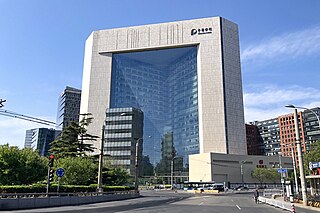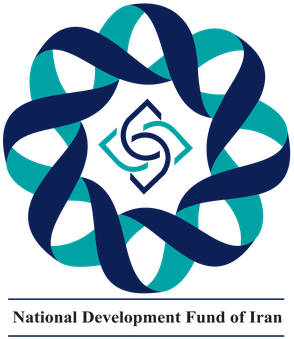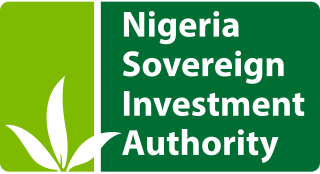Related Research Articles
A pension fund, also known as a superannuation fund in some countries, is any program, fund, or scheme which provides retirement income.

The pula is the currency of Botswana. It has the ISO 4217 code BWP and is subdivided into 100 thebe. Pula literally means "rain" in Setswana, because rain is very scarce in Botswana—home to much of the Kalahari Desert—and therefore valuable and a blessing. The word also serves as the national motto of the country.
The Government Pension Fund of Norway comprises two entirely separate sovereign wealth funds owned by the government of Norway.
An institutional investor is an entity which pools money to purchase securities, real property, and other investment assets or originate loans. Institutional investors include commercial banks, central banks, credit unions, government-linked companies, insurers, pension funds, sovereign wealth funds, charities, hedge funds, REITs, investment advisors, endowments, and mutual funds. Operating companies which invest excess capital in these types of assets may also be included in the term. Activist institutional investors may also influence corporate governance by exercising voting rights in their investments. In 2019, the world's top 500 asset managers collectively managed $104.4 trillion in Assets under Management (AuM).

The Abu Dhabi Investment Authority is a sovereign wealth fund owned by the Emirate of Abu Dhabi in the United Arab Emirates, founded to invest funds on behalf of the Government of Abu Dhabi. It manages the emirate's excess oil reserves and is estimated to manage $853 billion. ADIA is one of the largest sovereign wealth funds in the world.

GIC Private Limited is a Singaporean sovereign wealth fund that manages the country's foreign reserves. Established by the Government of Singapore in 1981 as the Government of Singapore Investment Corporation, of which "GIC" is derived from as an acronym, its mission is to preserve and enhance the international purchasing power of the reserves, with the aim to achieve good long-term returns above global inflation over the investment time horizon of 20 years.

The Saudi Central Bank, previously known as the Saudi Arabian Monetary Authority, established in 1952, is the central bank of the Kingdom of Saudi Arabia. After the name change in 2020, the Saudi Central Bank continued to use the same acronym (SAMA).

The State Administration of Foreign Exchange (SAFE) of the People's Republic of China is an administrative agency under the State Council tasked with drafting rules and regulations governing foreign exchange market activities, and managing the state foreign-exchange reserves, which at the end of December 2016 stood at $3.01 trillion for the People's Bank of China. The current director is Pan Gongsheng.

The Bank of Botswana is the central bank of Botswana.

A sovereign wealth fund (SWF), sovereign investment fund, or social wealth fund is a state-owned investment fund that invests in real and financial assets such as stocks, bonds, real estate, precious metals, or in alternative investments such as private equity fund or hedge funds. Sovereign wealth funds invest globally. Most SWFs are funded by revenues from commodity exports or from foreign-exchange reserves held by the central bank.

China Investment Corporation is a sovereign wealth fund that manages part of China's foreign exchange reserves. China's largest sovereign fund, CIC was established in 2007 with about US$200 billion of assets under management, a number that grew to US$1,200 billion in 2021 and US$1,350 billion in 2023.

The Libyan Investment Authority is a government-managed sovereign wealth fund and holding company headquartered in Tripoli, Libya. It was established on August 28, 2006, by Decree 208 of the General People's Committee of Libya (GPC), after the lifting of economic sanctions that had previously precluded foreign investment in Libya. The LIA oversees and manages investments in various areas including agriculture, real estate, infrastructure, oil and gas and in shares and bonds. It is Africa's largest sovereign wealth fund. The fund is a member of the International Forum of Sovereign Wealth Funds and is therefore signed up to the Santiago Principles on best practice in managing sovereign wealth funds. In September 2023, the fund has US$67 billion in assets under management.
The Korea Investment Corporation is a sovereign wealth fund established by the government of South Korea in 2005. Its mission is to preserve and enhance the long-term purchasing power of South Korea's sovereign wealth through efficient management of public funds in the international financial markets. KIC manages assets entrusted by the Government, the Bank of Korea, and other public funds as defined under the National Finance Act. KIC directly invests the entrusted assets or re-entrusts the assets to external managers. As of September 2023, KIC has $169 billion assets under management.

Linah Kelebogile Mohohlo was a Botswana banker and university chancellor. She was the first female Governor of the Bank of Botswana from 1999 to 2016. She was also the first female Chancellor of the University of Botswana, serving from 2017 to 2021.

The National Development Fund of Iran is Iran's sovereign wealth fund. It was founded in 2011 to supplement the Oil Stabilization Fund. NDFI is independent of the government's budget. Based on Article 84 of the Fifth Five-year Socio-Economic Development Plan (2010–2015), the National Development Fund was established to transform oil and gas revenues to productive investment for future generation. It is a member of the International Forum of Sovereign Wealth Funds and therefore is signed up to the Santiago Principles on best practice in managing sovereign wealth funds. Withdrawing any money from this fund requires Khamenei's permission.

The Nigeria Sovereign Investment Authority is a Nigerian establishment which manages the Nigeria sovereign wealth fund, into which the surplus income produced from Nigeria's excess oil reserves is deposited. This sovereign wealth fund was founded for the purpose of managing and investing these funds on behalf of the government of Nigeria. The fund was established by the Nigeria Sovereign Investment Authority Act 2011, signed in May 2011, and commenced operations in October 2012. It is intended to invest the savings gained on the difference between the budgeted and actual market prices for oil to earn returns that would benefit future generations of Nigerians. The fund was allocated an initial US$1 billion in seed capital, and, an additional $0.60billion has been contributed to date by the current administration. In September 2023, the fund has US$2.3 billion in assets under management.

The Fundo Soberano de Angola is the sovereign wealth fund of Angola. It is a member of the International Forum of Sovereign Wealth Funds, and therefore has signed up to the Santiago Principles on best practice in managing sovereign wealth funds. The FSDEA is meant to play an important role in promoting Angola’s social and economic development and generating wealth for its people. The fund was rated by the SWFI in February 2015 with a ranking of 8 out of 10.

The Public Investment Fund is the sovereign wealth fund of Saudi Arabia. It is among the largest sovereign wealth funds in the world with total estimated assets of US$776 billion. It was created in 1971 for the purpose of investing funds on behalf of the Government of Saudi Arabia. The wealth fund is controlled by Crown Prince Mohammed bin Salman, Saudi Arabia's de facto ruler since 2015.
The following lists events that happened during 1976 in Botswana.
References
- ↑ "Pula Fund (Pula Fund) - Sovereign Wealth Fund, Botswana - SWFI". www.swfinstitute.org. Retrieved 2023-06-29.
- 1 2 Alsweilem, Khalid A.; Cummine, Angela; Rietveld, Malan; Tweedie, Katherine (2015). A comparative study of sovereign investor models: Sovereign fund profiles (PDF) (Report). Harvard Kennedy School. pp. 11–16. Archived (PDF) from the original on 5 May 2021. Retrieved 5 May 2021.
- ↑ Nyambura-Mwaura, Helen (13 February 2014). "African nations race to build sovereign funds". Reuters . Johannesburg, South Africa. Archived from the original on 26 May 2021. Retrieved 5 May 2021.
- ↑ Kojo, Naoko C. (2015). Small Countries with Volatile Revenue: Botswana and Bhutan (PDF) (Report). World Bank. Archived (PDF) from the original on 9 April 2016. Retrieved 5 May 2021.
 This article incorporates text by Naoko C. Kojo available under the CC BY 3.0 license.
This article incorporates text by Naoko C. Kojo available under the CC BY 3.0 license. - ↑ Ntibinyane, Ntibinyane; Letlole, Olebile (4 February 2016). "Botswana repeatedly raids preservation fund". Mail & Guardian . Archived from the original on 2 December 2020. Retrieved 5 May 2021.
- ↑ Mguni, Mbongeni (21 May 2019). "Botswana to Invest Diamond Wealth More Widely". Bloomberg . Retrieved 5 May 2021.
- ↑ Benza, Brian (14 July 2020). "Botswana central bank seeks law to preserve shrinking sovereign wealth fund". Reuters . Gaborone, Botswana. Archived from the original on 5 May 2021. Retrieved 5 May 2021.
- ↑ "Organisation | Bank of Botswana". www.bankofbotswana.bw. Retrieved 2023-06-29.
- ↑ "Board of Directors | Bank of Botswana". www.bankofbotswana.bw. Retrieved 2023-06-29.
- ↑ "Executive Committee | Bank of Botswana". www.bankofbotswana.bw. Retrieved 2023-06-29.